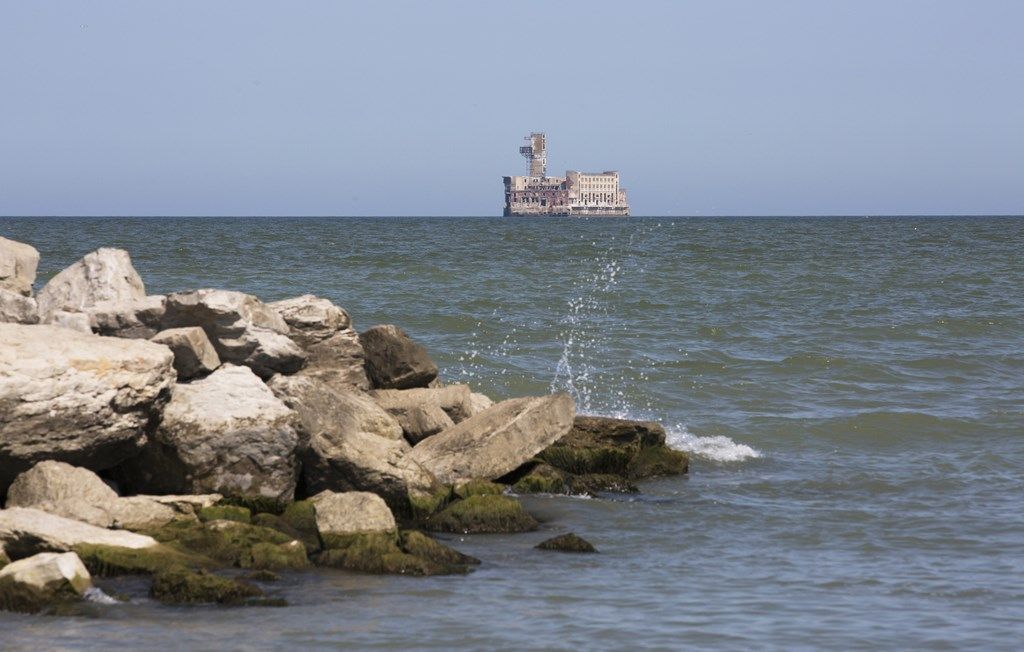Establishing the Legal Status of the Caspian Sea

Caspian Sea Disputes
Differences over the division and exploitation of the Caspian seabed and waters, including its estimated 8.3 billion m3 of natural gas and 48 billion barrels of crude oil, were among the main obstacles to the adoption of the convention. The reservoir is also important for fishing, yielding between 80% and 90% of all sturgeon caviar.
Regulations from 1921 and 1940, between the Russian Soviet Federative Socialist Republic/USSR and Persia/Iran, became obsolete after the collapse of the USSR. The Caspian Sea became of economic interest to the new littoral states of Azerbaijan, Kazakhstan and Turkmenistan. The dispute regarding its division was based on whether it was in fact a “sea”, in which exploitation zones are designated in accordance with the United Nations Convention on the Law of the Sea of 1982, or a lake, where every coastal state owns an equal part.
Azerbaijan, Iran, Kazakhstan, Russia and Turkmenistan have been engaged in talks on the legal status of the Caspian Sea since 1996. At the same time, states applied a policy of fait accompli, drilling in territories they considered belonged to them. Iran treated the body of water as a lake, others as a sea.
In 2003, the northern part of the seabed and the Caspian shelf of Russia, Kazakhstan and Azerbaijan was divided into national sectors according to a modified middle line proposed by the Russia. It divides the seabed according to distances from each country’s coast. Iran rejected this solution because has got only 13-14% of the Caspian Sea. The Iranian authorities proposed a division based on that used for border lakes, which would give to each country a 20% share. At the same time, Iran has carried out drilling in the Sardar Jangal field, to which Azerbaijan has claimed rights. In turn, Azerbaijan has had disputes with Turkmenistan on many oil fields, including Kapaz, Azeri and Chirag (or Serdar, Osman and Omra in Turkmen terminology), located in the southern part of the Caspian Sea. In 2014, Kazakhstan concluded an agreement on the division of the shelf with Turkmenistan. This entered into force the following year. The greatest dispute regarding the division of the seabed was between Azerbaijan, Iran and Turkmenistan.
Further disputes concerned the principles of approving underwater pipelines and cables. Until now, all the coastal states needed consent for such activities, which often led to projects unfavourable for Russia or Iran being blocked. This was the case of the Trans-Caspian gas pipeline supported by the European Union to connect Turkmenistan with Azerbaijan and then Europe. The European Commission has been negotiating this project, which is to be part of the Southern Gas Corridor (an alternative to Russian pipelines) since September 2011. The planned capacity of the gas pipeline is 30 billion m3 annually. The EU market can offer these countries much higher gas prices than their Russian, Chinese or Indian counterparts.
The most Important Provisions of the Convention
The document signed on 12 August (still subject to ratification) states that the Caspian Sea is a closed body of water with special legal status. Although there is no direct reference to the UN Convention on the Law of the Sea, its content suggests that the Caspian Sea is treated as such. However, the lack of a clear description of its status, and contradictory statements by Russian diplomats, may cause problems of interpretation. The convention sets general rules for the division of the Caspian Sea. However, it does not specify the final division of its seabed into national sectors. It only states that their delimitation will take place through an agreement between the Caspian littoral states, taking into account the generally recognised principles and norms of international law.
In contrast, the waters of the basin are to be subject to regulations similar to the 1982 Convention on the Law of the Sea. Thus, they will be divided into internal waters, territorial waters (up to 15 nautical miles) and fishing zones (up to 10 miles). The remaining part of the water area and the other resources of the Caspian Sea will be used jointly by coastal states.
Regarding pipelines and cables on the bottom of the Caspian Sea, the regulation requires consent only from the state controlling the sector through which such infrastructure would pass. The remaining coastal countries will only need to be informed about this, which formally ends disputes about the Trans-Caspian gas pipeline, among others. However, the convention requires all countries to give consent, including environmental, so such projects. Russia and Iran could use this provision to delay the construction of unfavourable pipelines. These two countries also place great weight on security issues. Warships and other vessels using the reservoir can sail only under the flags of the Caspian littoral states, and only these countries can build naval ports of war.
The Importance of the Changes
The convention is the result of a compromise. Russia agreed to the principle of laying of underwater pipelines, because it wanted to maintain the freedom of navigation in the Caspian Sea. At the same time, it sought a favourable division of the seabed. Russia will also strengthen its military presence in this body of water, which was of particular use during the military operation in Syria, when the Caspian Flotilla used Kalibr missiles capable of hitting targets on Syrian territory 1,200 to 1,500km away. At the same time, Russia will make it difficult for other Caspian littoral countries to cooperate with the U.S. or China. In January, Kazakhstan signed an agreement with the U.S. on the transport of goods to Afghanistan. Like Azerbaijan, it is expanding its merchant fleet, opening up to the transit of Chinese goods to Europe.
The division set out in the convention is most disadvantageous for Iran. At the summit in Aktau, President Hasan Rouhani argued that further negotiations were needed to establish the border of jurisdiction over waters and the seabed. In March, Iran signed a protocol with Azerbaijan on the joint exploitation of offshore hydrocarbons in the Caspian Sea. This means that the countries of the southern basin will regulate these issues bilaterally, not requiring the consent of all states.
Azerbaijan and Turkmenistan can benefit from new the regulations, provided that they resolve disputes over the division of the seabed and obtain financial support from the EU for the construction of the Trans-Caspian gas pipeline. For now, Turkmenistan has been successfully exporting raw material to China (since 2009), and has begun building a pipeline to Pakistan and India (in 2015).
Conclusions
The success of negotiations is the result of closer cooperation between Russia and Iran, and of compromise between the other Caspian littoral states. The signatories of the document proposed the division of the Caspian Sea, which does not guarantee the end of disputes regarding its exploitation. Problems may arise in the interpretation of the convention, because it is not explicit on the maritime legal status of this body of water. This is beneficial for Russia, which, with its regulated northern part of the basin and guaranteed freedom of navigation, will enforce better conditions in the south. At the same time (in the interests of Iran), the convention secures the reservoir against exploitation for military activity by countries other than those on the Caspian Sea. The agreement also benefited the Russian military, giving Moscow the opportunity to expand its armed presence southward and operate in the Middle East.
The convention allows implementation of the EU-backed Trans-Caspian gas pipeline. Poland could benefit from the diversification of energy supplies that this would bring. However, key factors which could decide whether this project goes ahead include agreement between the Caspian littoral states and the positions of Russia and Iran. Coastal states will continue to try to block the gas pipeline for environmental reasons. Therefore, much depends on EU support for the countries of the region.


